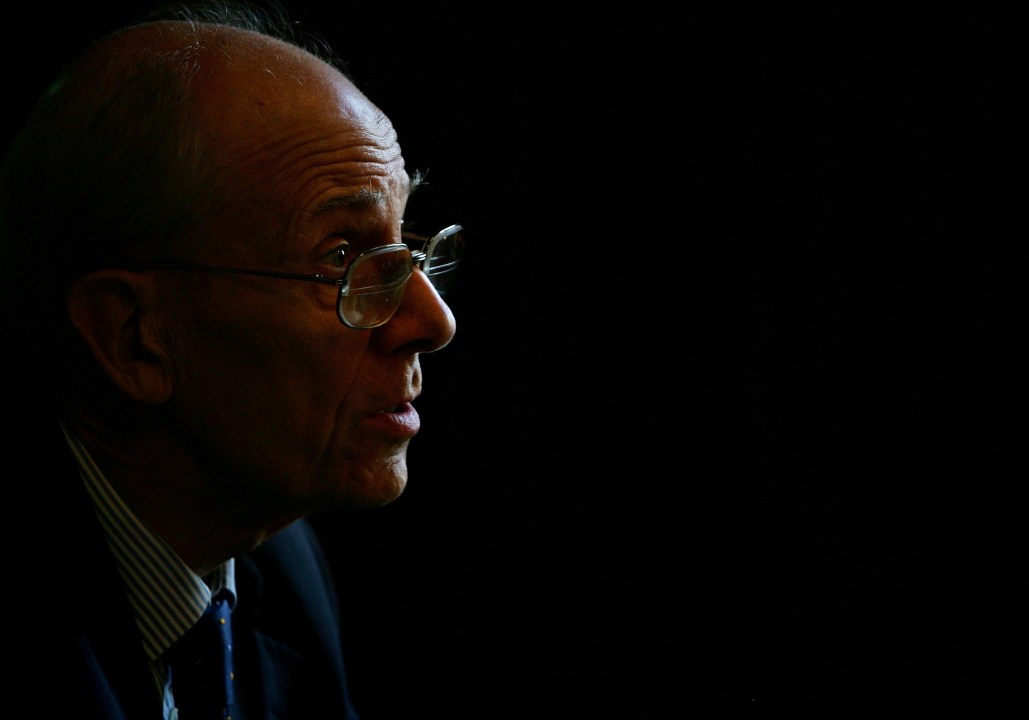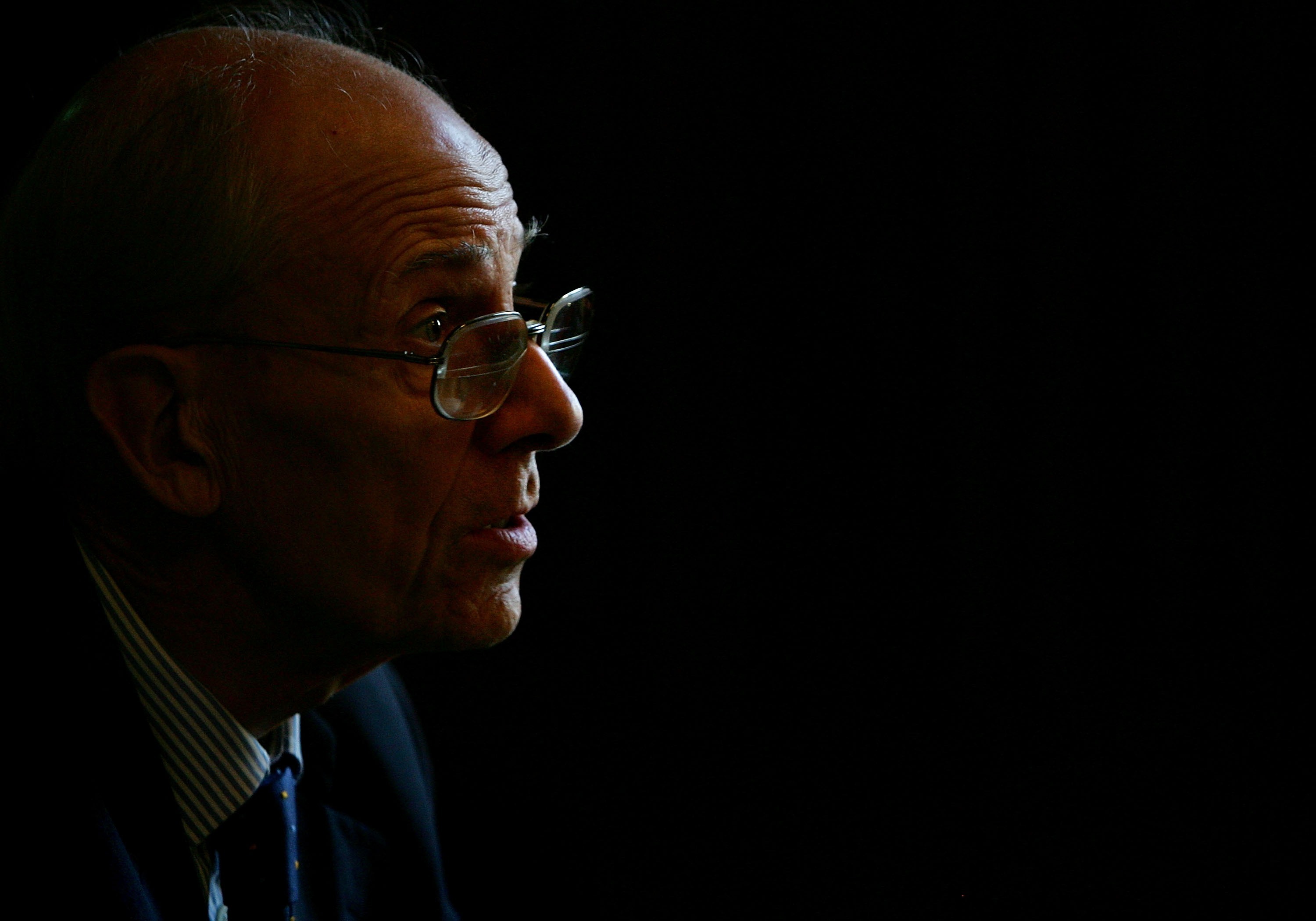 Lord Tebbit’s response to Michael Gove’s Spectator article last week is a remarkable spectacle: an argument between a past colossus of Tory Government and a future one. To the irritation of some of my fellow modernisers, I have a deep respect for Norman and thought it was especially crazy of that faction to try and expel him from the party in 2002. He is not, as some mods claim, the Scargill of the Right: this is a man who took on the unions and won, drove through many of the key Thatcherite reforms and was responsible for some of the party’s most remarkable electoral achievements. He is also a hero of the fight against the IRA, and has made huge personal sacrifices to care for his wife, horribly injured in the Brighton bomb. So a bit of respect please, gentlemen.
Lord Tebbit’s response to Michael Gove’s Spectator article last week is a remarkable spectacle: an argument between a past colossus of Tory Government and a future one. To the irritation of some of my fellow modernisers, I have a deep respect for Norman and thought it was especially crazy of that faction to try and expel him from the party in 2002. He is not, as some mods claim, the Scargill of the Right: this is a man who took on the unions and won, drove through many of the key Thatcherite reforms and was responsible for some of the party’s most remarkable electoral achievements. He is also a hero of the fight against the IRA, and has made huge personal sacrifices to care for his wife, horribly injured in the Brighton bomb. So a bit of respect please, gentlemen.
That said, I think his anxieties about Michael, expressed in a letter to the new issue of the magazine, are misplaced. Read Fraser’s account of the Gove education plan – much of it drawn from Sweden – and you will discover a model of liberalisation in education and consumer choice of precisely the sort that Norman has always called for. Then look at each of his individual anxieties about “Blair worship” in the shadow cabinet. It is true that the Cameroons admire Blair’s electoral success – that is only rational – and took his side in his battles with Brown over marketisation and choice in public service reform. It is also true that they accept that the Britain of 2008 is no more like the Britain of the Thatcher era than the Britain of 1979, which Tebbit and co inherited, was like the Britain of Macmillan. It may have been wrong of Cameron to coin the phrase “heir to Blair” but – short of turning back the clock – he is bound by the circumstances of history to try and follow him, identifying what was good and discarding the rest.
As a matter of fact, I don’t think the Cameroons have taken very much from the “poisonous tree” of Blairism. Norman’s shopping-list of Blair crimes is instructive because it is so easy to reassure him that the next Tory Government will not make the same mistakes:
1) The bungled war in Iraq: even key Atlanticists in the Shadow Cabinet like George Osborne say that the errors in planning and execution of the conflict must never be repeated. William Hague has called repeatedly for an independent inquiry into the war.
2) The dispatch of men and women to fight without the equipment they need: no parliamentarian has been more vocal on this matter than the Shadow Defence Secretary, Liam Fox.
3) The sensational increases in tax without measurable improvement in services: Lord Tebbit would not approve of Osborne’s commitment for the next three years to Labour’s spending plans. But he should be heartened by the promise that the whole issue will be reviewed in the third year (around the likely date of the next election) and by the existing plans to cut inheritance tax, stamp duty, and corporation tax, and to spend the money from green taxes on helping families.
4) The debauchment of the civil service: Cameron has spoken often of the need to roll back the “sofa government” of the Blair era and bring probity back to Whitehall.
5) The identity card fiasco: David Davis couldn’t have put it better himself. He wants to spend the money saved from scrapping the scheme n building prisons.
6) The criminal justice fiasco: see above. The “hug-a-hoodie” tone of early Cameronism has been replaced by a much tougher approach to crime and is at the heart of all Tory campaigning (witness the commitment to scrap the early release scheme and Boris’s mayoral strategy, which rightly focuses on safety on London’s streets and public transport.)
7) His [Blair’s] surrender of British sovereignty to Brussels: the Tories are pressing for a referendum on the Lisbon Treaty and have promised that they will not “let the matter rest there” in power. The detail is being hammered out, but a Cameron Government would undoubtedly seek the repatriation of powers (it is already committed to leaving the social chapter).
8) Remorseless attacks on the conventional family: Cameron’s social liberalism is tempered by a strong, pragmatic attachment to the institution of marriage. He is already committed to financial help for married coupled.
9) Despoilation of education: after the disaster of the grammar schools row, Tory education policy is right back on track under Michael Gove, and is one of the most energising aspects of the offer the Tories will make at the next election. See above.
10) Use of the benefit system to deepen the poverty trap, lesser incentives to work or save, his fuelling of the culture of drugs, alcohol, yobbery and violent crime: Norman’s successor as MP for Chingford, Iain Duncan Smith, has addressed these very issues in his pioneering work on the Broken Society. Wisconsin-style welfare reform would be at the heart of a Cameron Government’s policy agenda.
So – apart from that – what have the Cameroons ever done for us? Not so much Blair worship, as the Norman Conquest. Thoughts please, Coffee Housers.







Comments